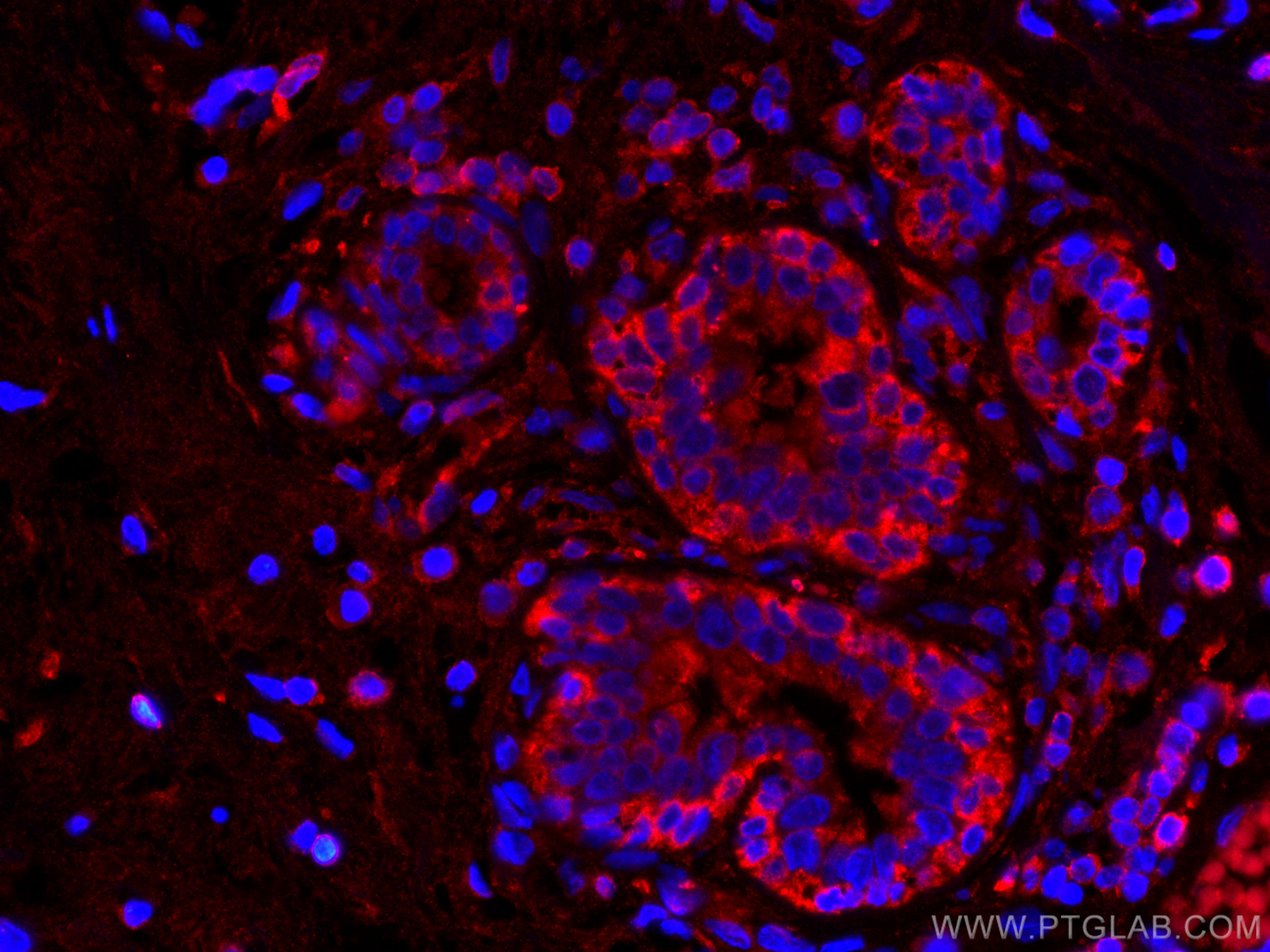CoraLite®594-conjugated L2HGDH Monoclonal antibody
L2HGDH Monoclonal Antibody for IF
Host / Isotype
Mouse / IgG2a
Reactivity
human, pig
Applications
IF
Conjugate
CoraLite®594 Fluorescent Dye
CloneNo.
3D11C2
Cat no : CL594-66269
Synonyms
Validation Data Gallery
Tested Applications
| Positive IF detected in | human breast cancer tissue |
Recommended dilution
| Application | Dilution |
|---|---|
| Immunofluorescence (IF) | IF : 1:50-1:500 |
| Sample-dependent, check data in validation data gallery | |
Product Information
CL594-66269 targets L2HGDH in IF applications and shows reactivity with human, pig samples.
| Tested Reactivity | human, pig |
| Host / Isotype | Mouse / IgG2a |
| Class | Monoclonal |
| Type | Antibody |
| Immunogen | L2HGDH fusion protein Ag8382 相同性解析による交差性が予測される生物種 |
| Full Name | L-2-hydroxyglutarate dehydrogenase |
| Calculated molecular weight | 463aa,50 kDa; 441aa,49 kDa |
| Observed molecular weight | 45 kDa |
| GenBank accession number | BC006117 |
| Gene symbol | L2HGDH |
| Gene ID (NCBI) | 79944 |
| RRID | AB_2919974 |
| Conjugate | CoraLite®594 Fluorescent Dye |
| Excitation/Emission maxima wavelengths | 588 nm / 604 nm |
| Form | Liquid |
| Purification Method | Protein A purification |
| Storage Buffer | PBS with 50% Glycerol, 0.05% Proclin300, 0.5% BSA, pH 7.3. |
| Storage Conditions | Store at -20°C. Avoid exposure to light. Aliquoting is unnecessary for -20oC storage. |
Background Information
L2HGDH(L-2-hydroxyglutarate dehydrogenase, mitochondrial) is also named as duranin, C14orf160 and belongs to the L2HGDH family. The putative L2HGDH is predicted to be targeted to the mitochondria where its mitochondrial targeting sequence is presumably removed(PMID:16005139). Defects in L2HGDH are the cause of L-2-hydroxyglutaric aciduria (L2HGA). It has 2 isoforms produced by alternative splicing with the molecular weight of 50 kDa and 48 kDa. L2HGDH also can be detected as ~45kD due to the 51aa transit peptide cleaved.
Protocols
| Product Specific Protocols | |
|---|---|
| IF protocol for CL594 L2HGDH antibody CL594-66269 | Download protocol |
| Standard Protocols | |
|---|---|
| Click here to view our Standard Protocols |


